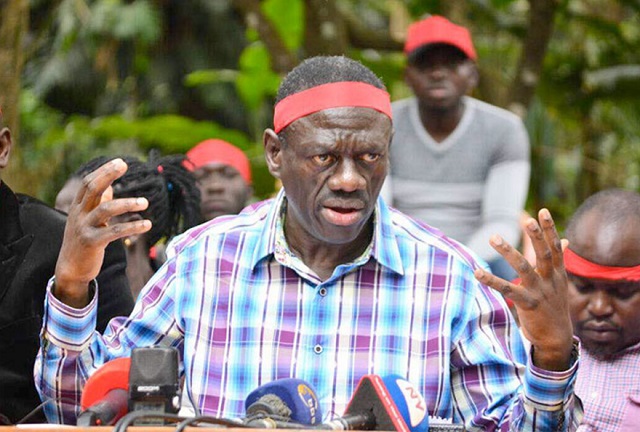
In a surprising announcement that has sent shockwaves through Uganda's political landscape, veteran opposition leader Dr. Kizza Besigye declared that he will not be standing as a candidate in the upcoming 2026 presidential elections. The decision marks a significant shift in the political dynamics of the country and raises questions about the future of the opposition movement.
Dr. Besigye, a prominent figure in Ugandan politics and four-time presidential candidate, made the announcement during an opposition leaders workshop convened by the office of the Leader of Opposition. He expressed gratitude to his supporters and outlined his reasons for stepping back from the electoral race.
"I have carefully considered the political landscape and the challenges we have faced in previous elections," Dr. Besigye stated. " I dont think 2026 in itself organised under what we have been discussing will ever cause Ugandans to be free. And the sooner we really unite over that, the better for this country. "
Besigye's decision comes as a surprise to many, as he has been a steadfast opposition figure, known for his vocal criticism of the ruling party and his tireless advocacy for political change. Over the years, he has been at the forefront of various opposition movements, including the Forum for Democratic Change (FDC), and has been a key challenger to President Yoweri Museveni's long-standing rule.
Political analysts speculate that Besigye's decision might be influenced by several factors. Firstly, after four unsuccessful attempts at the presidency, he may have reached a point of disillusionment with the electoral process and its limitations in bringing about meaningful change. Additionally, at the age of 65, Besigye may be considering his legacy and the need to pave the way for a new generation of leaders.
The announcement has sparked mixed reactions among Ugandans and the political community. Some view it as a significant loss for the opposition movement, as Besigye's charisma, experience, and large following have played a crucial role in mobilizing support against the ruling party. Others see it as an opportunity for fresh faces and ideas to emerge within the opposition, bringing new energy and strategies to the political landscape.
In response to Besigye's announcement, NRM expressed indifference, stating that the decision was inconsequential to the ruling National Resistance Movement (NRM) party's plans for the upcoming elections. However, political analysts predict that Besigye's absence from the race could lead to a reshuffling of the opposition and potentially impact the dynamics of the 2026 presidential elections.
While Besigye has ruled out his own candidacy, he emphasized his commitment to supporting the opposition cause and working towards democratic reforms in Uganda. He urged his supporters and fellow opposition members to remain united and continue the fight for a more inclusive and accountable political system.
As the news of Besigye's decision reverberates across the country, attention now turns to the emerging political figures who may step up to fill the void left by the veteran opposition leader. The upcoming 2026 presidential elections are expected to witness a new era in Ugandan politics, with the potential for fresh alliances, strategies, and contenders vying for the country's highest office.
Only time will tell how Besigye's absence from the race will shape the political landscape and influence the trajectory of Uganda's democratic journey in the years to come.

















